第73章
Do not think, dear sir and friend, that I blame only the Ecole itself; no, I blame the system by which it is recruited. This system is the /concours/, competition,--a modern invention, essentially bad; bad not only in science, but wherever it is employed, in arts, in all selections of men, of projects, of things. If it is a reproach to our great Ecoles that they have not produced men superior to other educational establishments, it is still more shameful that the /grand prix/ of the Institute has not as yet furnished a single great painter, great musician, great architect, great sculptor; just as the suffrage for the last twenty years has not elected out of its tide of mediocrities a single great statesman. My observation makes me detect, as I think, an error which vitiates in France both education and politics. It is a cruel error, and it rests on the following principle, which organizers have misconceived:--/Nothing, either in experience or in the nature of things, can give a certainty that the intellectual qualities of the adult youth will be those of the mature man./
At this moment I am intimate with a number of distinguished men who concern themselves with all the moral maladies which are now afflicting France. They see, as I do, that our highest education is manufacturing temporary capacities,--temporary because they are without exercise and without future; that such education is without profit to the State because it is devoid of the vigor of belief and feeling. Our whole system of public education needs overhauling, and the work should be presided over by some man of great knowledge, powerful will, and gifted with that legislative genius which has never been met with among moderns, except perhaps in Jean-Jacques Rousseau.
Possibly our superfluous numbers might be employed in giving elementary instruction so much needed by the people. The deplorable amount of crime and misdemeanors shows a social disease directly arising from the half-education given the masses, which tends to the destruction of social ties by making the people reflect just enough to desert the religious beliefs which are favorable to social order, and not enough to lift them to the theory of obedience and duty, which is the highest reach of the new transcendental philosophy. But as it is impossible to make a whole nation study Kant, therefore I say fixed beliefs and habits are safer for the masses than shallow studies and reasoning.
If I had my life to begin over again, perhaps I would enter a seminary and become a simple village priest, or the teacher of a country district. But I am too far advanced in my profession now to be a mere primary instructor; I can, if I leave my present post, act in a wider range than that of a school or a country parish. The Saint-Simonians, to whom I have been tempted to ally myself, want now to take a course in which I cannot follow them.
Nevertheless, in spite of their mistakes, they have touched on many of the sore spots which are the fruits of our present legislation, and which the State will only doctor by insufficient palliatives,--merely delaying in France the moral and political crisis that must come.
Adieu, dear Monsieur Grossetete; accept the assurance of my respectful attachment, which, notwithstanding all these observations, can only increase.
Gregoire Gerard.
According to his old habit as a banker, Grossetete had jotted down his reply on the back of the letter itself, heading it with the sacramental word, /Answered/.
It is useless, my dear Gerard, to discuss the observations made in your letter, because by a trick of chance (I use the term which is, as you say, the pet word of fools) I have a proposal to make to you which may result in withdrawing you from the situation you find so bad. Madame Graslin, the owner of the forests of Montegnac and of a barren plateau extending from the base of a chain of mountains on which are the forests, wishes to improve this vast domain, to clear her timber properly, and cultivate the stony plain.
To put this project into execution she needs a man of your scientific knowledge and ardor, and one who has also your disinterested devotion and your ideas of practical utility. It will be little money and much work! a great result from small means! a whole region to be changed fundamentally! barren places to be made to gush with plenty! Isn't that precisely what you want,--you who are dreaming of constructing a poem? From the tone of sincerity which pervades your letter, I do not hesitate to bid you come and see me at Limoges. But, my good friend, don't send in your resignation yet; get leave of absence only, and tell your administration that you are going to study questions connected with your profession outside of the government works. In this way, you will not lose your rights, and you will have time to judge for yourself whether the project conceived by the rector of Montegnac and approved by Madame Graslin is feasible.
I will explain to you by word of mouth the advantages you will find in case this great scheme can be carried out. Rely on the friendship of Yours, etc, T. Grossetete.
Madame Graslin replied to Grossetete in few words: "Thank you, my friend; I shall expect your /protege/." She showed the letter to the rector, saying,--"One more wounded man for the hospital."
The rector read the letter, reread it, made two or three turns on the terrace silently; then he gave it back to Madame Graslin, saying,--"A fine soul, and a superior man. He says the schools invented by the genius of the Revolution manufacture incapacities. For my part, I say they manufacture unbelievers; for if Monsieur Gerard is not an atheist, he is a protestant."
"We will ask him," she said, struck by an answer.